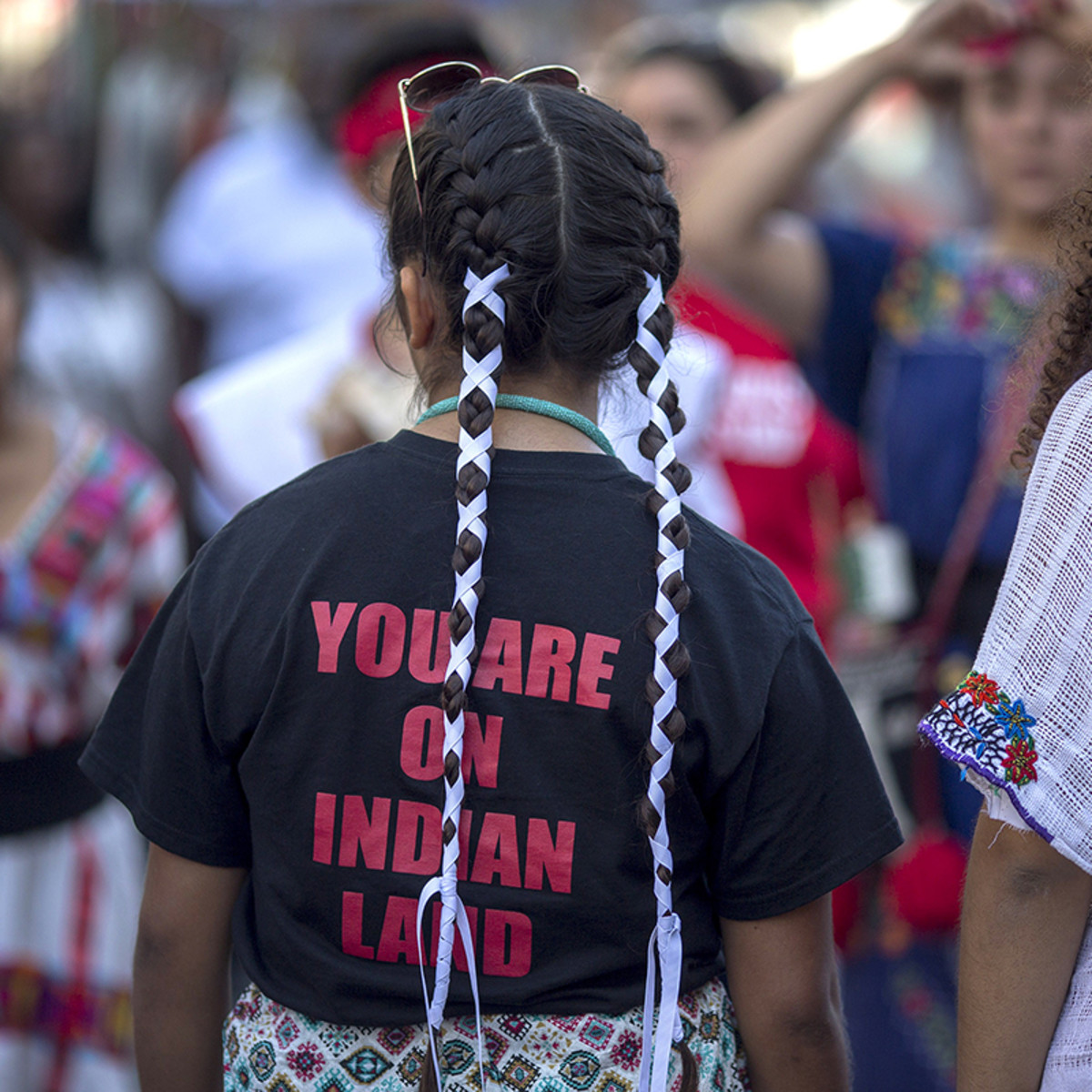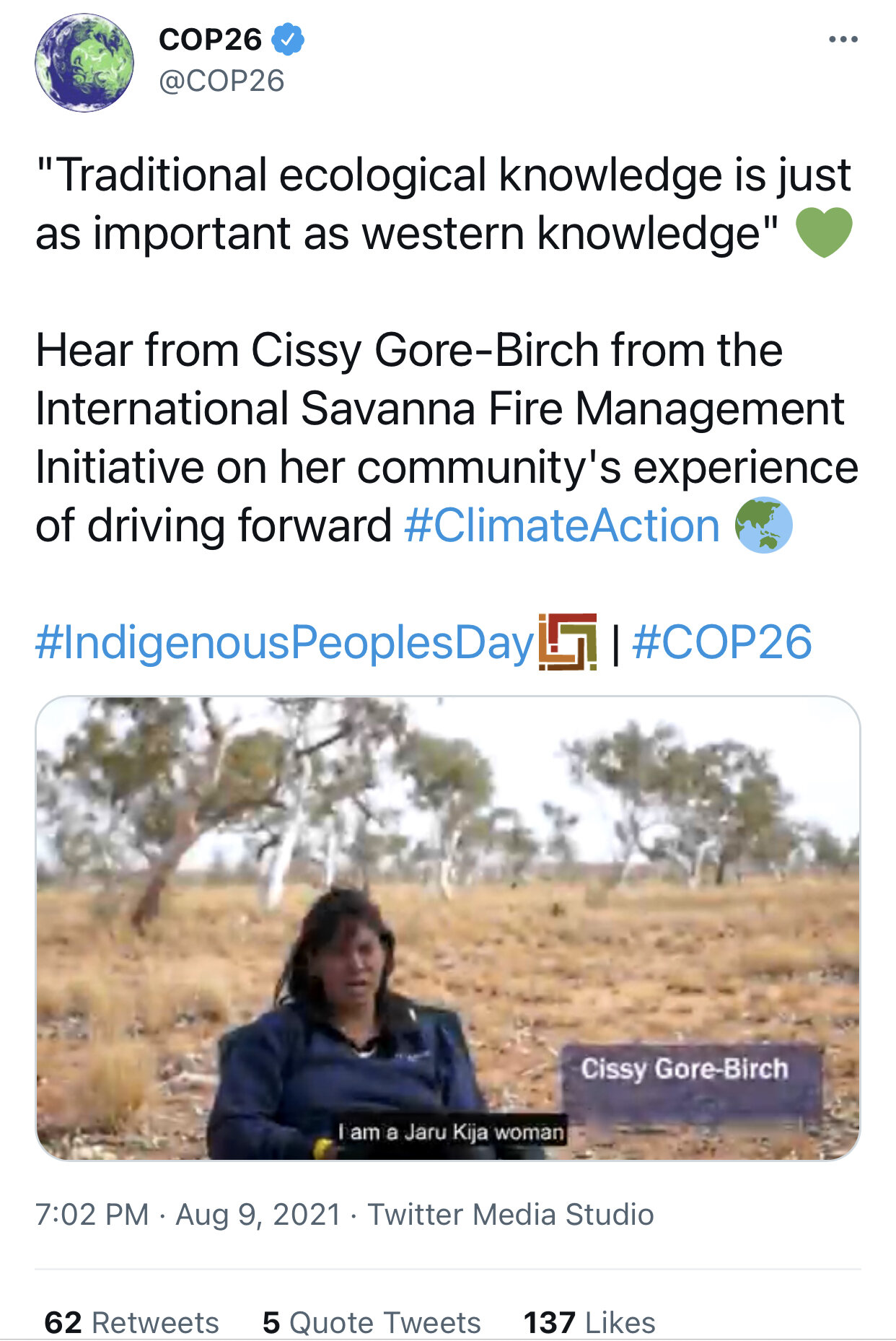Indigenous peoples, also known as First Nations, Native Americans, Aboriginal Australians, and other terms depending on the region, are a diverse group of communities with a long and rich history. Indigenous peoples have lived on the land for thousands of years and have unique cultures, languages, and traditions that are integral to their identities and way of life. Despite facing significant challenges and injustices, indigenous peoples continue to play a vital role in the world today and their contributions should be recognized and valued.
One of the most important reasons for valuing indigenous peoples is the fact that they are the original stewards of the land. Indigenous peoples have a deep spiritual and cultural connection to the land and have lived in harmony with the environment for centuries. They have a wealth of traditional knowledge and practices that can help us to better understand and preserve the natural world. For example, indigenous peoples have developed sophisticated systems for managing resources and maintaining biodiversity, and their knowledge of medicinal plants and traditional ecological knowledge can be invaluable in addressing environmental challenges.
In addition to their contributions to the environment, indigenous peoples have also made significant contributions to human civilization. Many indigenous cultures have developed sophisticated systems of governance, law, and social organization that have stood the test of time. Indigenous peoples have also made important contributions to art, literature, and other areas of human creativity and expression.
Despite these contributions, indigenous peoples have often been marginalized and disadvantaged. They have faced discrimination, violence, and other forms of abuse, and their cultures and ways of life have been threatened by colonization, assimilation, and other forms of oppression. This has had a profound impact on the health, well-being, and survival of indigenous communities, and has led to significant disparities between indigenous and non-indigenous peoples in areas such as education, health, and economic opportunity.
In recognition of these challenges and in order to address them, it is important to recognize and respect the rights of indigenous peoples. This includes the right to self-determination, the right to maintain their cultures and ways of life, and the right to participate in decision-making processes that affect their lives and communities. It also includes the right to justice and reparations for past wrongs, and the right to be treated with dignity and respect.
In conclusion, indigenous peoples are an integral and valuable part of the global community. They have a rich and diverse history, and their cultures and traditions are an important source of knowledge and inspiration. It is important to recognize and value the contributions of indigenous peoples, and to work to address the challenges and injustices they have faced. By doing so, we can build a more inclusive and just society that respects the rights and dignity of all people.
10 things to know about indigenous peoples by United Nations Development Programme
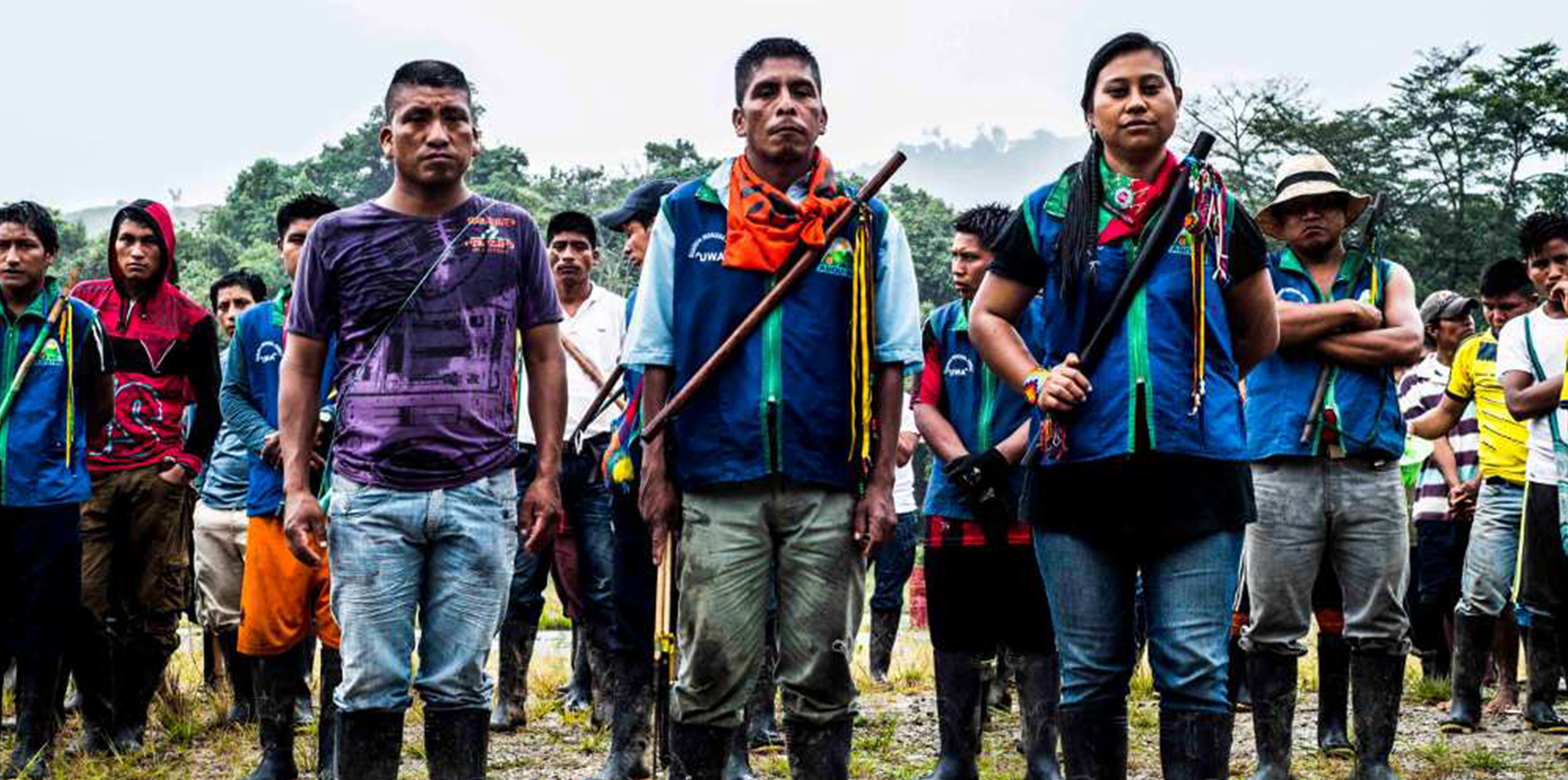
What does the land mean to indigenous people? In addition, forestry activities have led to a considerable reduction in tree-hanging lichen, the primary staple of a reindeer diet. Now, more and more children around the country are being educated in their mother tongue. The buffalo not only provided food for the natives but also many of their personal and household items, such as teepees, clothing, utensils, etc. Land is required to construct factories and industries to carry out the production process. Renewable energies cannot continue with the exploitative frameworks of implementation that fossil fuel and other megaprojects have adopted. Stephanie Jensen is a Licensed Independent Clinical Social Worker, psychotherapist, private practice owner and social work licensing supervisor.
Essay On The Importance Of Indigenous People

JOANNA HAUTAKORPI, Minister Adviser in the Ministry for Justice of Finland, said that while three Sami languages are spoken in the country, most Sami children today live outside the Sami homeland area. Culture can teach us much history, from where people originated and came from. Bias is the unbalanced prejudice in favor of or against any one subject, person, or group. RENA TASUJA Estonia , describing a number of activities to mark the International Year, said a forthcoming congress on indigenous languages will focus on protection measures, among other things. They usually engage in farming and hunting-gathering activities. There art and crafts items are very beautiful and interesting and the history that is behind every artifact.
Challenges and Opportunities for Indigenous Peoples’ Sustainability
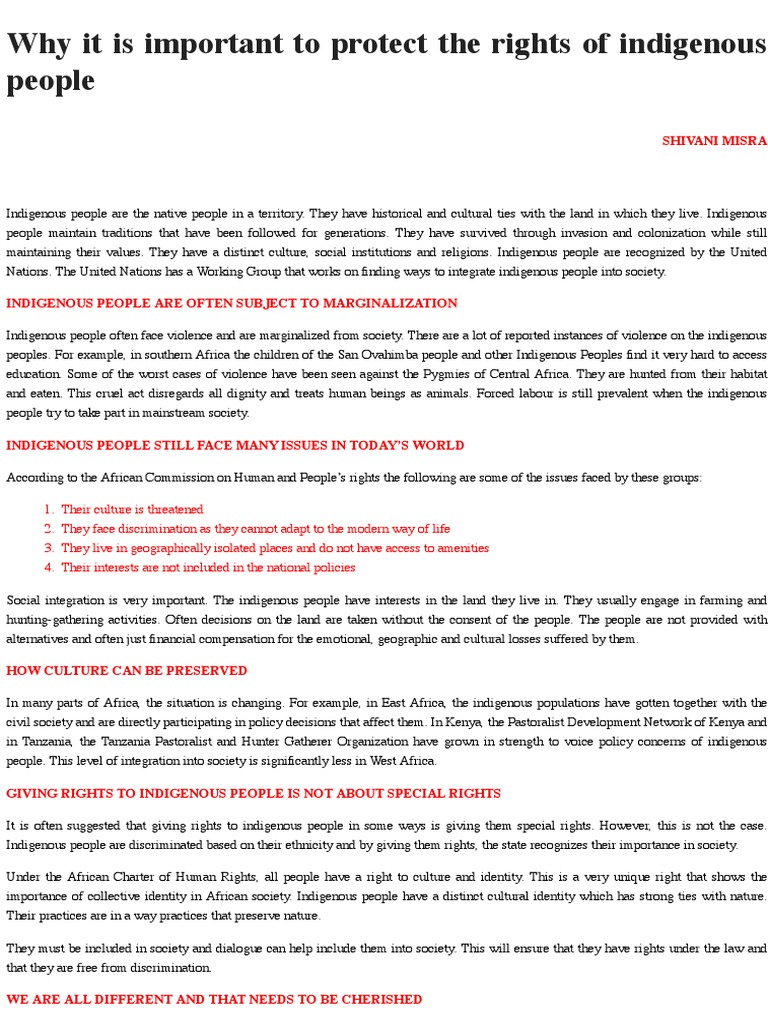
However, throughout Australia, indigenous languages are being revived through education, with eight languages being taught in universities and more in primary and secondary schools. When the diversity shrinks, the fungal strains multiply. It is important to highlight that both indigenous women and men are important agents to combat climate change. Redirecting our attention to Indigenous People on this day can be a chance for Indigenous People to share their culture and traditions, build our knowledge of Indigenous groups in our area and give us time to reflect on the struggles that their community has faced. Many countries are taking steps toward acquiring a clean energy future including wind, solar, hydrothermal, and bioenergy in order to mitigate and adapt to the challenges that lie ahead with an ever more populous, warming planet.
Indigenous People’s Traditional Knowledge Must Be Preserved, Valued Globally, Speakers Stress as Permanent Forum Opens Annual Session
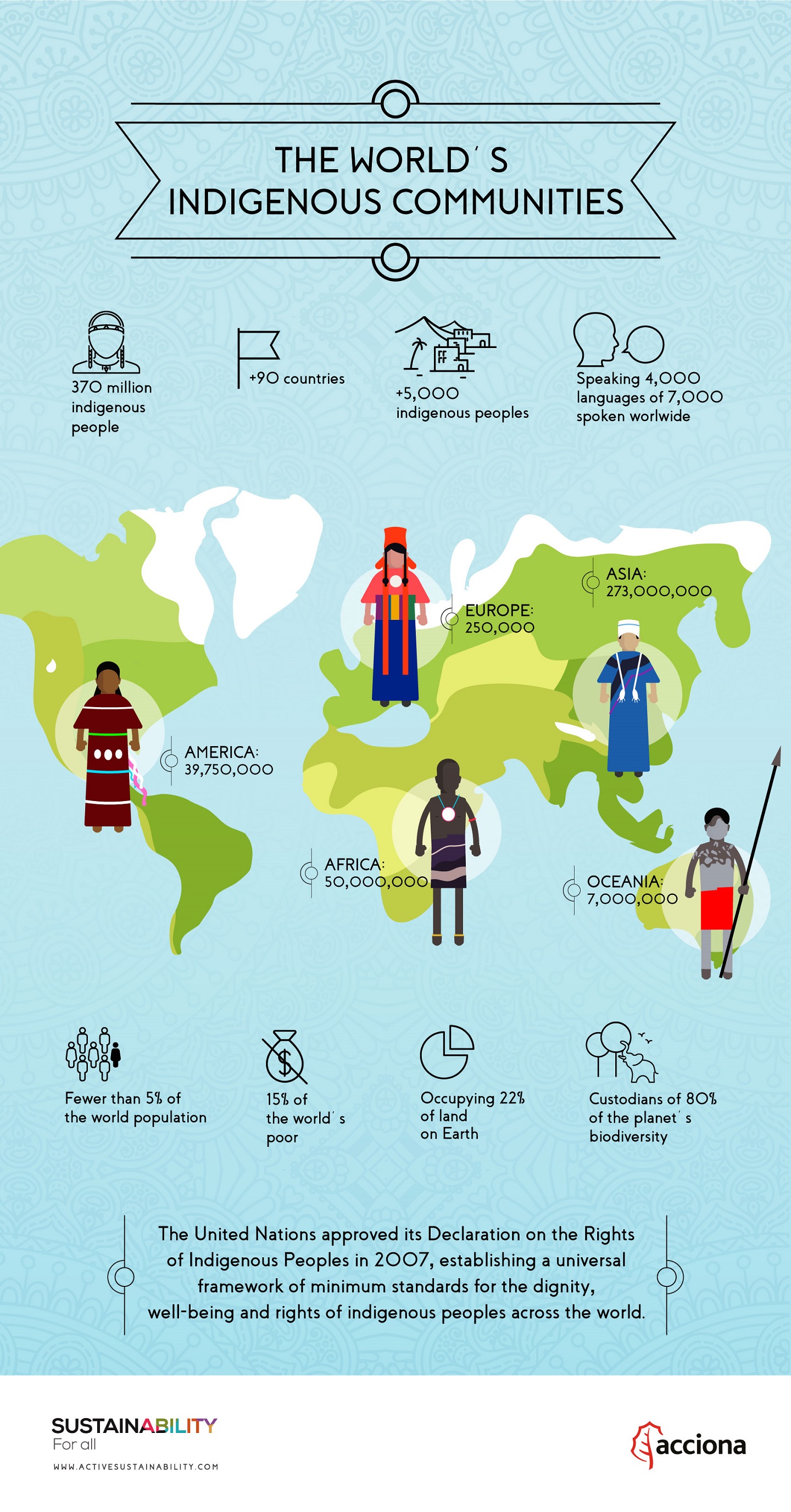
Community is a pillar of identity for Indigenous Peoples — it is coming together for ceremony, for mourning, for celebration, for gratitude, for harvest, for support, for everything. There is an opportunity to involve Aborignal Peoples in fire management across the country. This included a wealth of ways in which their identities were stripped away, and in which they were taken advantage of by the Government of Canada. For example, I grew up in a small town in Wisconsin where I experienced what it was like to be a part of a small, tight-knit community. PAOLO DAVID, Chief of Indigenous peoples and Minorities Section, Office of the United Nations High Commissioner for Human Rights OHCHR , said language is pivotal in terms of rights protection and good governance.
